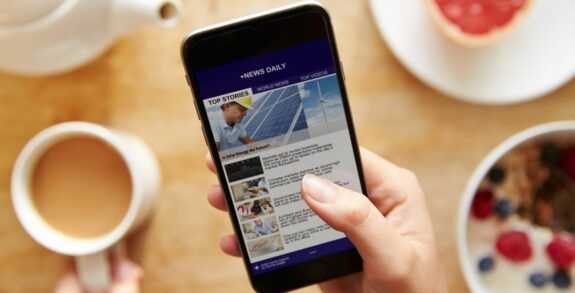What Are The Current Monetization Models For Mobile Apps?

When people are considering jumping into app development either as a career, an investment or as extension of an existing business one of the first things they want to know is how much money can I make? As a mobile app development company this is a dilemma we discuss with clients regularly which is typically when we discuss the current monetization models for mobile apps.
Understanding the monetization options are important and choosing the proper one can be the difference between booking a loss or gain at the end of the year. Currently there are six models that are being used as a way to generate income from an app, each with its own positives and negatives.
Models for Monetization
- Freemium – The name says it all; people get a free, non-premium version of the app to play around with. This is a very popular option because it is very easy to introduce the app to new users since there is no initial cost. Often this model is paired with a subscription option or one-time fee to later unlock premium features after the value proposition has been firmly established with the initial user. Generally this model focuses on download numbers, as the number of later conversions tends to be a low percentage. However there have been freemium apps that have been very successful especially in the games genre.
- In-App Purchases – This is a very popular model for mobile games and also some ecommerce apps and social apps. It is a very flexible model that can be used a lot of ways such as unlocking game boosts, paying for a transaction fee to make a purchase or using an in-app purchase to buy more widgets that can then be used on the app for making connections like on social platforms.
- Direct Sales – Direct sales have proven to be a frustrating model for many developers. While they can clearly see the value their app provides, it is not always easy to translate that to customers who would rather have the chance to take an app for a test drive first. Some of the few success stories are connected to established brands that have an existing popularity and following where people already know what value they can expect from the purchase. As you can often get something similar for free, your presentation in the app store needs to sell this app to consumers.
- Subscription – This is a simple idea; you pay to access the premium features. For a developer it is nice because you have steady revenue however you also need to keep the app developing to ensure existing users still want to maintain use. Since the initial download is free users have less pressure to make a decision until after they are hooked in to the free aspects they can see.
- Sponsorship – This is a unique idea where users act as an advertising sponsor and then they get paid for that sponsorship. The developer automatically gets a small piece of that fee. This is a very new idea that is attempting to combine typical sponsorship idea, like athletes wearing Nike apparel, with apps.
- Crowdfunding – This is another unique idea where developers use a crowdfunding platform like Kickstarter to get donations/funding for the idea. This can then help pay for development and lessen the concerns over the app instantly generating revenue. It also opens the door for combining something like a subscription or in-app purchase model so the initial backers get something extra up front such as a year-long subscription, in-app credits, or other exclusive perks that makes the initial investment worthwhile. For strong concepts that can attract a lot of funding, this also provides marketing help because you have an invested initial group of users to work with before the app is even launched.
The bottom line is that people make apps to make money, either directly or indirectly. The current monetization models for mobile apps offer different options, some of which will be a better fit than others for the app being developed. The key is to include the idea of how you will monetize the app from the initial planning stages so that whatever method you choose is integrated from the get go.
Be sure to check back every Monday, Wednesday and Friday for great new Lounge Lizard blog articles.





